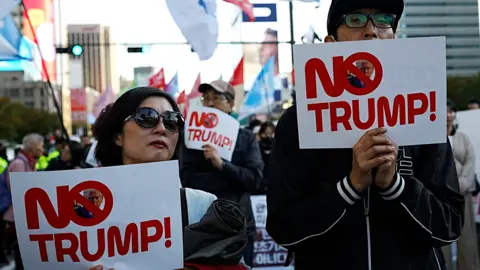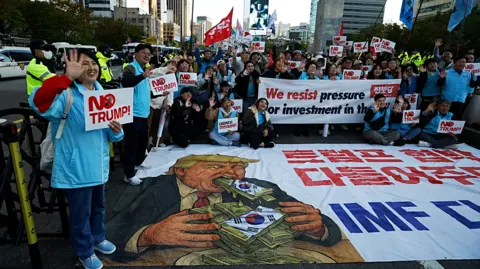
'No Trump!' the rally of hundreds shouted, growing louder as it neared the United States embassy in the centre of South Korea's capital Seoul. A line of police buses stopped them from reaching the gates, but their voices soared above Gwanghwamun square, reaching the ears of US President Donald Trump's representatives.
Just a few hundred meters away, another group demonstrated with banners reading 'No China'. These protests, although not massive by South Korean standards, illustrate the diplomatic challenges facing President Lee Jae-myung this week as he hosts leaders from the U.S. and China.
Seoul's longstanding alliance with Washington, forged during the Korean War, persists, but the nation relies heavily on China, its primary trading partner. 'It's a particularly fraught moment - South Korea finds itself caught between a rock and a hard place,' commented Darcie Draudt-Vejares from the Carnegie Endowment. This situation reflects the intricate balancing act many countries face amid their dependence on both superpowers.
As South Korea anticipates Trump's and Xi’s arrival, Lee is under pressure to maintain friendly relations with both nations. However, enduring anti-American sentiment persists following immigration raids affecting Hyundai workers in the U.S., while anti-Chinese sentiment has risen in the wake of historical grievances and economic retaliation by Beijing.
Lee's government hopes to secure economic agreements while balancing the political narratives of power that include rising nationalism and historic alliances. As he meets Xi, the stakes are high for future stability and economic opportunities in an increasingly polarized world.

Despite the challenges, public sentiment in South Korea remains complex; many still view the U.S. positively while expressing concerns about China's influence. With protests rallying around themes of economic security and national pride, Lee's navigation between these international powers during such testing times will require deft political maneuvering and an understanding of national sentiment.

















